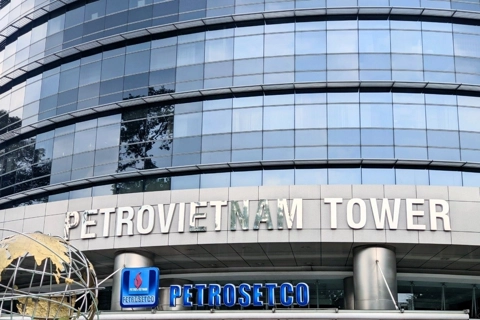Vietnam’s GDP forecast to hit 6.5% in 2023: ADB
The country's policies to support growth would help Vietnam counter the global headwinds in 2023 and maintain a high growth rate.
Vietnam’s economic growth is expected to moderate to 6.5% this year, following a strong performance in 2022, and to expand to 6.8% in 2024.
ADB Country Director to Vietnam Andrew Jeffries revealed the figures at the launch of the bank’s latest flagship economic publication Asian Development Outlook (ADO) today [April 4].
| Overview of ADB's report launching ceremony. Photo: Hai Yen/The Hanoi Times |
According to Jeffries, Vietnam's GDP growth will accelerate to 8%, the fastest rate in the past 25 years, as a result of the removal of Covid-19 restrictions and the success of national vaccine coverage. This growth will be fueled by rising exports, robust foreign direct investment, and recovering domestic spending.
“Nevertheless, 2023 will be a challenging year. Vietnam’s economic growth will be constrained in 2023 by the global economic slowdown, continued monetary tightening in advanced economies, and spillover from global geopolitical tensions,” said Jeffries.
“However, the country’s growth support policy with monetary easing, a large amount of public investment to be disbursed in 2023, and the reopening of China will help the country counter these headwinds,” he said.
Reviewing the country’s prospects, ADB Principal Economist Nguyen Minh Cuong noted the global economic slowdown worsened in the fourth quarter of 2022 and will likely continue in 2023.
Falling global demand is expected to weigh on Vietnam’s industrial growth, while agriculture output is expected to grow by 3.2% this year on revived domestic demand and the reopening of China, which accounts for 45% of Vietnam’s export of fruits and vegetables, he noted.
In addition, tourist arrivals from China from March 15 are expected to benefit Vietnam's tourism and services sector, which is forecast to grow by 8.0% this year.
"As China is Vietnam's largest tourist source market, the country will benefit greatly from this development," he said.
Cuong expected public investment to be another key driver of economic recovery and growth in 2023 and 2024, spurring construction and other related economic activities. "With the shift to monetary easing in March 2023, public spending is expected to generate significant multiplier effects, providing a strong economic growth stimulus," he added.
This year, the government's disbursement target is US$30 billion, of which 90% will have been allocated to ministries and provinces by January 2023.
Cuong, on the other hand, suggested that domestic consumption will continue to recover in 2023, as "revived tourism, new public investment and stimulus programs launched in January 2022, and a salary hike effective in July 2023 are expected to keep domestic consumption on the rise, although higher inflation may hamper its recovery."
Referring to the recent move by the State Bank of Vietnam (SBV) to cut its benchmark interest rate, Cuong noted that this effectively makes Vietnam the first economy in Southeast Asia to ease its monetary policy.
"Given subdued inflationary pressures, the move is seen as appropriate to steer Vietnam's economy towards higher growth," Cuong said.
Meanwhile, the prolonged pandemic has exposed structural issues among the main downside risks to the economy, Cuong said, not to mention the ongoing difficulties surrounding the domestic capital markets.
"Although the market turmoil has not yet led to serious systemic risks due to the resilience of banks, risks are emerging. In the long term, financial sector reforms should be sustained to reduce the economy's dependence on bank financing and enhance capital market transparency," Cuong said.
Hanoi's economy expanded by 5.8% in Q1
Hanoi's gross regional domestic product (GRDP) grew by 5.80% in the first quarter. Although this figure is slightly lower than the 5.91% growth rate recorded in the same period last year, Hanoi still ranks as the third fastest growing city among the five major sub-national metropolises, which include Haiphong, Da Nang, Ho Chi Minh City and Can Tho.
Tran Sy Thanh, Chairman of the Hanoi Municipal Government, stressed the importance of the coming months and the need to focus on achieving the 7% economic growth target for 2023. To achieve this goal, Hanoi will continue to promote administrative reform, increase the use of technology, improve budget revenue collection, and accelerate investment through public-private partnerships.
Additionally, Hanoi will be reviewing current operations to identify and address any obstacles while also providing support for production and business activities for enterprises through initiatives such as preferential interest rates, tax policies, credit, land, and human resources. The city will also promote the adoption of high technology, support industries, digital transformation, and agricultural production, processing, and consumption.












